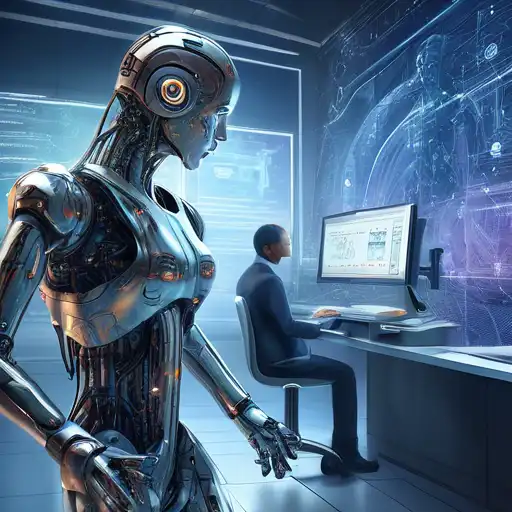Exploring the Core Differences Between AI and Machine Learning
In the rapidly evolving world of technology, the terms Artificial Intelligence (AI) and Machine Learning (ML) are often used interchangeably. However, they represent distinct concepts with unique applications and implications. This article delves into the nuances that set them apart, providing clarity for enthusiasts and professionals alike.
What is Artificial Intelligence?
Artificial Intelligence is a broad field of computer science focused on creating systems capable of performing tasks that typically require human intelligence. These tasks include problem-solving, recognizing speech, and making decisions. AI can be rule-based, relying on predefined algorithms, or it can incorporate more advanced techniques like machine learning to improve over time.
What is Machine Learning?
Machine Learning, a subset of AI, involves the development of algorithms that allow computers to learn from and make predictions based on data. Unlike traditional AI, ML systems improve their performance as they are exposed to more data over time. This learning process enables applications such as recommendation systems, fraud detection, and autonomous vehicles.
Key Differences Between AI and Machine Learning
- Scope: AI encompasses a wider range of technologies aimed at simulating human intelligence, while ML specifically focuses on learning from data.
- Functionality: AI systems can perform tasks without explicit programming for each task, whereas ML systems require training with data to perform specific tasks.
- Adaptability: ML models adapt and improve their performance based on new data, a feature not inherent to all AI systems.
- Applications: AI is used in robotics, natural language processing, and more, while ML is pivotal in data analysis, predictive modeling, and personalized recommendations.
Why the Confusion Between AI and Machine Learning?
The overlap between AI and ML stems from their shared goal of automating and enhancing tasks that would otherwise require human intervention. However, understanding their differences is crucial for leveraging their potential effectively. For instance, AI's broader applications can transform industries, while ML's data-driven insights offer precision in decision-making.
Future Trends in AI and Machine Learning
As technology advances, the integration of AI and ML is expected to deepen, leading to more sophisticated and autonomous systems. Innovations such as deep learning, a subset of ML, are pushing the boundaries of what's possible, enabling advancements in fields like healthcare, finance, and entertainment.
In conclusion, while AI and Machine Learning are interconnected, they serve different purposes and operate on distinct principles. Recognizing these differences is essential for anyone looking to navigate the future of technology effectively. Whether you're a developer, a business leader, or simply a tech enthusiast, understanding the distinction between AI and ML can help you make informed decisions and stay ahead in the digital age.
